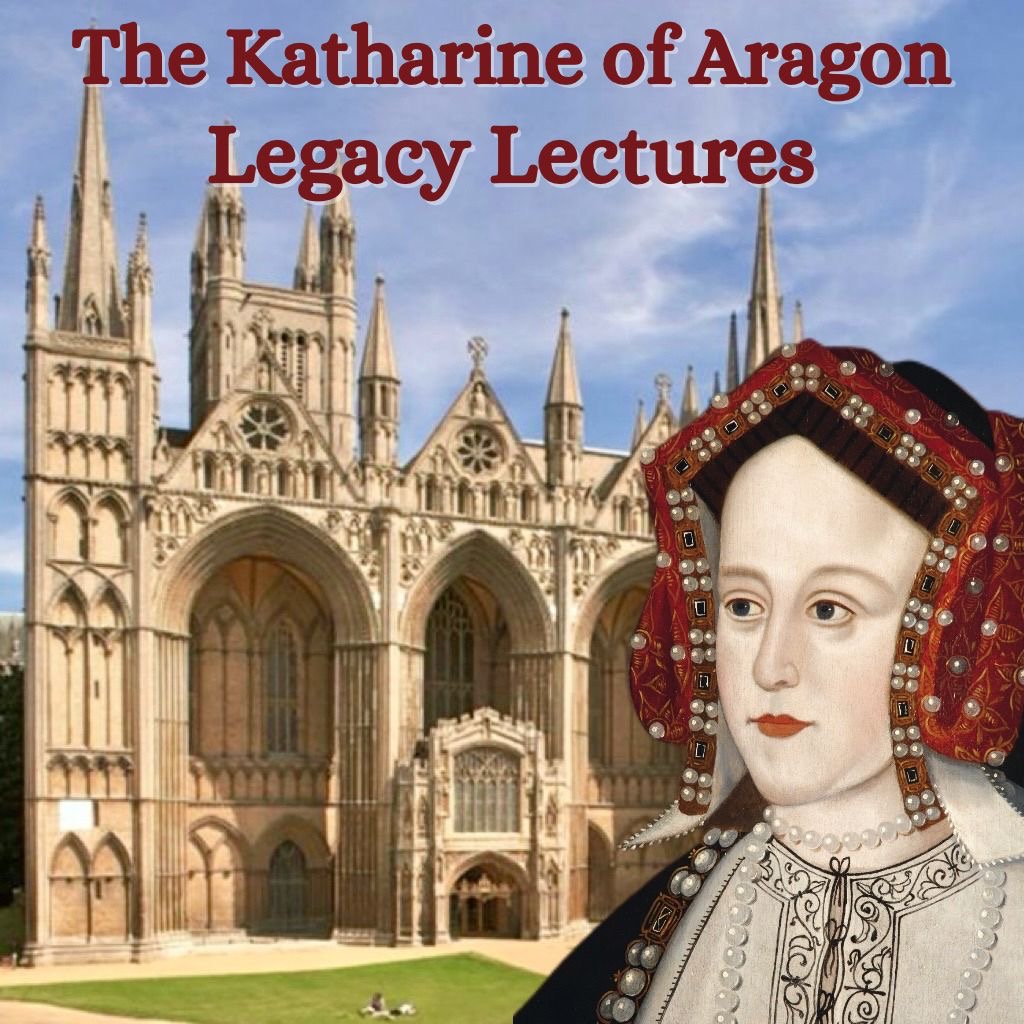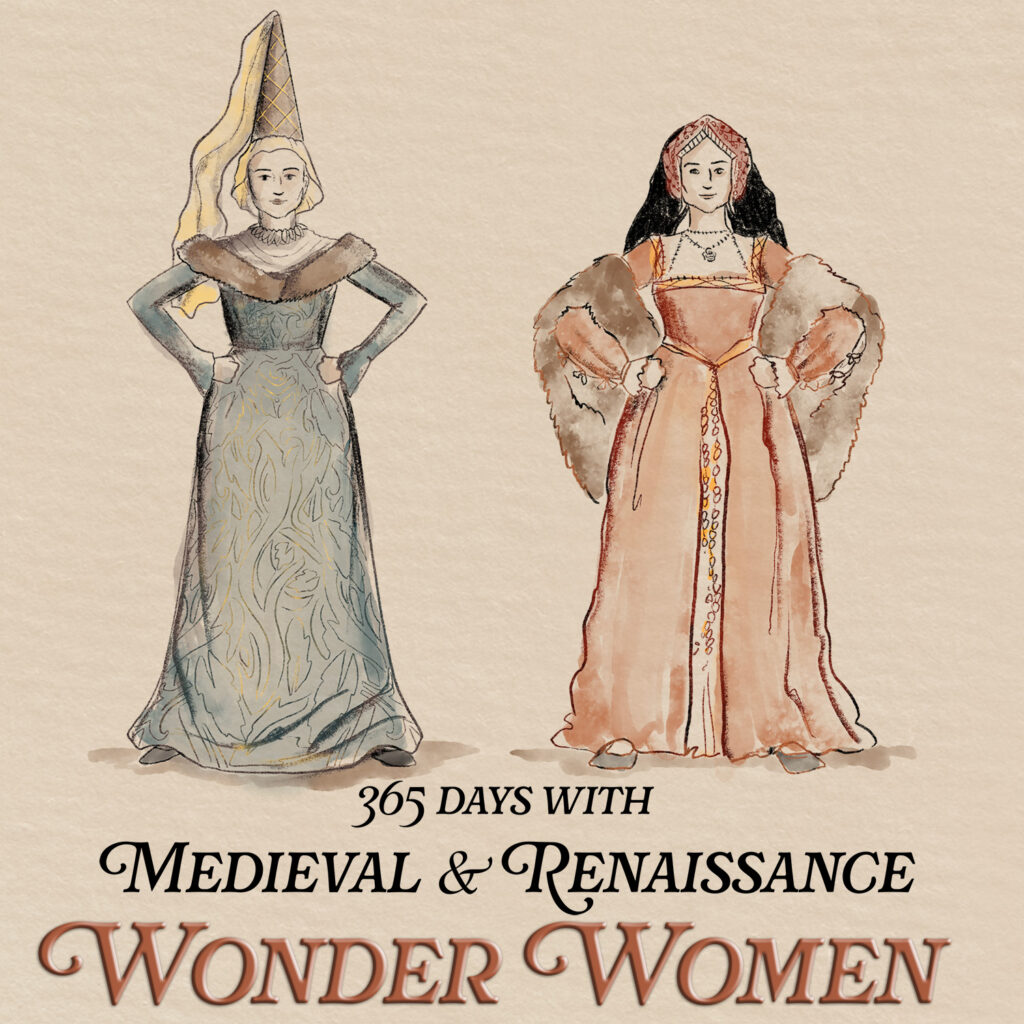 1. When did you realise that you wanted to become an historian?
1. When did you realise that you wanted to become an historian?
I’ve always been interested in History – as a very small child I was fascinated by knights in armour.
2. What sparked your interest in Tudor England?
I specialize mainly in the fifteenth century, but think it’s equally important to know what went before and what came after. History doesn’t begin and end on particular dates.
3. Tell us about your latest book, Henry VIII’s Last Love.
It’s the story of Katherine Willoughby, Duchess of Suffolk who some contemporaries thought would become Henry VIII’s seventh wife. She avoided involvement in the Lady Jane Grey conspiracy (she was Jane’s step-grandmother), but Queen Mary’s agents still pursued her across Europe for several years. She is little-known nowadays, but has been described by a recent writer as ‘one of the most remarkable women of her time’.
4. What was the greatest challenge you faced when writing this book?
Actually, the same as with all subjects of this era – analysing the inevitably limited evidence to present a true picture of what he/she was really like. In Katherine’s case her often outspoken letters to William Cecil give us a real insight into the person behind the pen.
5. You have written about many fascinating historical figures over the years, do you have a favourite?
I’ve been studying Richard III for more than half a century. My fascination with him never palls.
6. I recently read that in 1986, you suggested that the remains of Richard III would be found on the site of the Grey Friars Church in Leicester. Is this true?
In 1986 I published an article in the Transactions of the Leicestershire Archaeological and Historical Society in which I dismissed the popular notion that the King’s remains had been disinterred and thrown into the river at the Dissolution of the Monasteries, and concluded that they could still be found on the site of the Grey Friary ‘at some time in the twenty- first century’.
7. Name two items on your bucket list.
I haven’t got one!
8. What are your favourite holiday destinations?
Wales and Scotland – for their ‘Book Towns’ and their upland walks.
9. Describe a day in your life when you are writing. Do you follow any rituals?
I always get up at 6 am and write for two hours before breakfast. Then, I’ve got some more words under my belt whatever the rest of the day holds.
10. What does your writing space look like?
Our spare bedroom has been converted into a study, and houses my collection of reference books, amassed over some forty years.
11. Do you use social media?
I joined Facebook just over a year ago and have found it useful both for communication and as a source of information. But it is possible to waste so much time on these things!
12. What are a few of the books on your TBR list?
I’m looking forward to reading Michael Hicks’s view of The Family of Richard III, Alison’s Weir’s forthcoming life of Margaret Douglas, Countess of Lennox, and Philippa Gregory’s next novel.
13. What is something most people don’t know about you?
I was a chartered company secretary for many years – I didn’t go to university to formally qualify as a historian until I was 34.
14. Paperback or e-books?
E-books are easy to pack and have a significant share of the market – but for me there is nothing like a real book.
15. Pet peeves?
Inconsiderate drivers and cold callers.
16. What women in history do you most admire?
A particular favourite is Elizabeth Woodville, the subject of my first book. If she has one thing in common with Richard III it is that they have both had a very bad ‘press’. But she won the admiration of at least some of her contemporaries, and although not groomed for queenship she never let Edward IV down.
17. Are you currently working on any new books?
I have several possible projects under discussion. An updated edition of my biography of Richard III will be issued as soon as possible after the re-interment, and my Pitkin Richard III. The Leicester Connection is being similarly revised.
18. Do you have a favourite quote?
This, from one of my favourite novels, John Buchan’s The Blanket of the Dark:
‘You remember Chief Justice Crew’s famous question: ‘Where is Bohun, where is Mowbray, Where is Mortimer? Nay, which is more and most of all, where is Plantagenet? Gone in name, but not perhaps in blood. Somewhere those high strains are in the commonalty of England, for it is the commonalty that endures’.
The discovery of several individuals who share Richard III’s DNA is testimony to the truth of this.
19. What three new skills would you like to learn?
I would like to improve my cooking, learn to dance, and be able to play a musical instrument – although I’m not very musical!
20. What do you think is the secret to a happy life?
Being content with what you have.
Henry VIII’s Last Love by David Baldwin (published by Amberley, 2015) is available to buy from all good bookstores, as well as online at the Amberley website, Amazon and The Book Depository.
David Baldwin is a historian who has taught at the Universities of Leicester and Nottingham for many years. He is the critically acclaimed author of The Lost Prince (‘A fascinating new theory’ THE DAILY MAIL), Elizabeth Woodville (‘Inspirational… brings her alive for the general reader’ PHILIPPA GREGORY), Richard III (‘A believably complex Richard, neither wholly villain nor hero’ PHILIPPA GREGORY), Robin Hood (‘Excellent… a pleasure to read’ BBC HISTORY MAGAZINE) and co-wrote the bestseller The Women of the Cousins War. He lives in Leicester.
PRAISE FOR THE BOOK
‘A gripping biography of the woman who might have been Henry VIII’s seventh wife… David Baldwin is a brilliant historical detective.’ PHILIPPA GREGORY (author of The White Queen).
‘A vivid and fascinating account… brings Katherine Willoughby deservedly to the forefront of the Tudor age.’ ALISON WEIR.



















Latest Comments